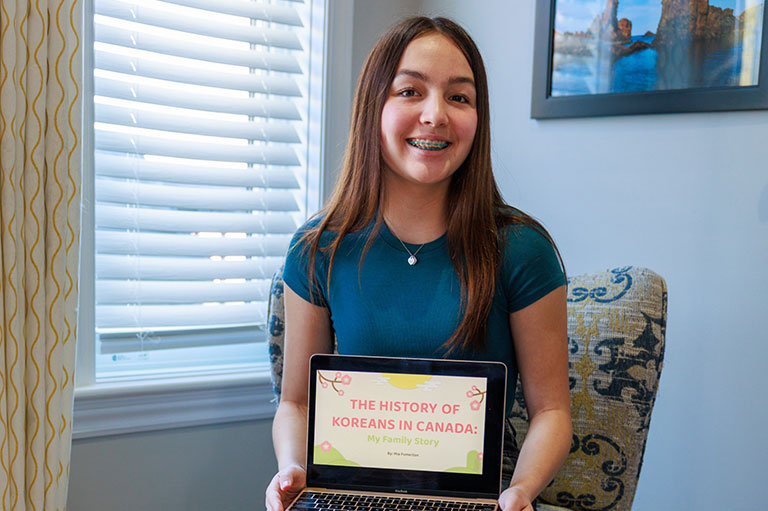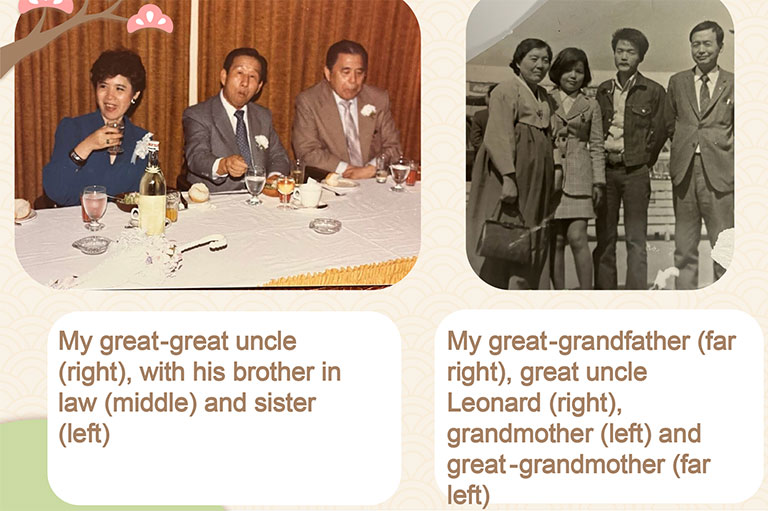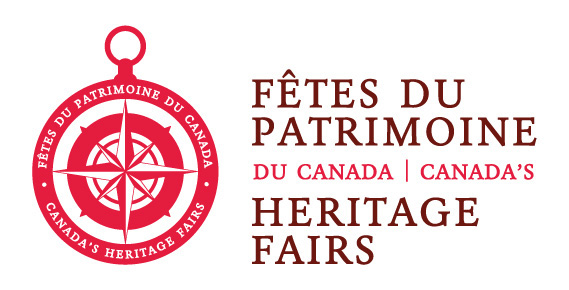Mia F.

The History Of Korean in Canada: My Family Story
Mia F.
Ontario Independent Heritage Fair
Kingston, ON
My project starts with describing the story of my great-great uncle, who got an offer for an medical internship in Alberta but ended up staying in Canada permanently and building a legacy by creating a foundation for other Koreans to build a life in Canada. After his internship was over, he established himself as a beloved doctor in Blind River, Ontario and eventually set up a clinic for himself in Toronto. He also helped his family build a life here in Canada by buying a poultry farm so they were able to have stable jobs when they came here. He also helped several other families come to Canada, which really helped create the Korean-Canadian community. He also worked very hard to create a permanent Korean exhibit at the ROM. The final response to my inquiry question describes the hard work and dedication of Dr Tai-Yun Whang. He came to Canada without family or a community to support him, and he worked so hard to promote Korean culture in Canada, which allowed it to grow over time. Today, Korean culture is extremely popular, and contributes to the diversity of cultures that makes Canada an amazing place to live.
What sources and evidence did you consult for your project? What different perspectives did they provide on your topic?
I was able to collect several primary and secondary sources, such as my great-aunt Sue Wade-West, who sent me several family stories and photos to include in my project. I also talked to Hea-Soon Lee, my grandmother, who was able to move here thanks to my great-great uncle. They both provided a perspective on how rewarding the Canadian experience can be. My mother, Margaret Chung, helped set up the conversations with my relatives. I also pulled secondary sources from websites like the Canadian Encyclopedia and newspaper articles about Dr. Whang. The Canadian encyclopedia provided a lot of historical information on how Korean culture has evolved today. The newspaper articles showed me the impact he had on the Canadian community while he was alive.

What is the historical significance of your topic?
Asian immigration didn’t really happen in Canada in large numbers until after World War II. There were lots of issues like the Chinese head tax, the exclusion act and Japanese internment that prevented people from moving here. It wasn’t until the 1960s and 70s that immigration from Asian countries really increased. People like my great-great uncle, who took the step to come to Canada even though there weren't many people who looked like him, is one of the reasons why Canada is so multicultural today. This has contributed so much to food, music, and culture all over this country.
Why did you choose this topic?
When I discovered that my great-great uncle was the first permanent Korean immigrant to Canada, I was truly proud of my family’s history and had to find some way to honour it. I enjoyed learning more about my heritage and the important part my family played within the Korean-Canadian community.

